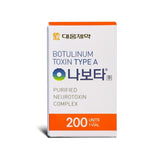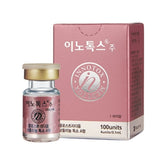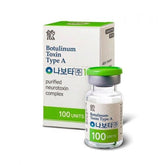Comparing Different Whitening Agents
 Comparing Different Whitening Agents. When it comes to achieving a brighter and more even skin tone, many individuals turn to whitening agents. Among the most popular are Hydroquinone and Alpha Arbutin. Both of these ingredients are widely used in skincare products, but they work in different ways and have distinct benefits and drawbacks. This blog post will compare Hydroquinone and Alpha Arbutin, helping you understand their mechanisms, effectiveness, and safety, so you can make an informed decision about which one might be right for your skincare needs.
Comparing Different Whitening Agents. When it comes to achieving a brighter and more even skin tone, many individuals turn to whitening agents. Among the most popular are Hydroquinone and Alpha Arbutin. Both of these ingredients are widely used in skincare products, but they work in different ways and have distinct benefits and drawbacks. This blog post will compare Hydroquinone and Alpha Arbutin, helping you understand their mechanisms, effectiveness, and safety, so you can make an informed decision about which one might be right for your skincare needs.
Understanding Hydroquinone
Hydroquinone is a well-known skin-lightening agent that has been used for decades to treat hyperpigmentation, dark spots, and melasma. It works by inhibiting the enzyme tyrosinase, which is essential for melanin production in the skin. By reducing the production of melanin, Hydroquinone helps to lighten dark spots and even out skin tone.
Benefits of Hydroquinone
- Effective for Severe Hyperpigmentation: Hydroquinone is considered one of the most effective treatments for severe hyperpigmentation and melasma. It can produce noticeable results within a few weeks of consistent use.
- FDA-Approved: Hydroquinone is one of the few skin-lightening agents that have been approved by the FDA for over-the-counter use in concentrations up to 2%. Higher concentrations require a prescription.
Drawbacks of Hydroquinone
- Potential Side Effects: Long-term use of Hydroquinone can lead to side effects such as skin irritation, redness, and a condition called ochronosis, which causes blue-black pigmentation in the skin.
- Sun Sensitivity: Hydroquinone can increase the skin’s sensitivity to the sun, making it essential to use sunscreen and limit sun exposure while using this product.
Understanding Alpha Arbutin
Alpha Arbutin is a naturally derived skin-lightening agent found in plants like bearberry. It is a glycosylated hydroquinone, meaning it releases Hydroquinone slowly and safely. Alpha Arbutin also works by inhibiting the enzyme tyrosinase, thereby reducing melanin production and lightening dark spots.
Benefits of Alpha Arbutin
- Gentle on the Skin: Alpha Arbutin is less irritating than Hydroquinone, making it suitable for sensitive skin types. It provides a milder approach to skin lightening without the harsh side effects.
- Natural Ingredient: As a naturally derived compound, Alpha Arbutin is often preferred by those looking for more natural skincare solutions.
- Effective for Various Skin Types: Alpha Arbutin is effective across different skin types and tones, providing a more even skin-lightening effect without causing hyperpigmentation.
Drawbacks of Alpha Arbutin
- Slower Results: While Alpha Arbutin is effective, it generally works more slowly than Hydroquinone. Users may need to wait longer to see significant results.
- Less Potent: For severe cases of hyperpigmentation, Alpha Arbutin may not be as potent or effective as Hydroquinone.
Comparing the Effectiveness
Hydroquinone
Hydroquinone is widely recognized for its potency and speed in treating hyperpigmentation. It is often recommended for individuals with significant dark spots or melasma who are seeking fast and noticeable results. However, its strength can also lead to side effects, and it is not suitable for long-term use due to the risk of ochronosis.
Alpha Arbutin
Alpha Arbutin is praised for its gentle approach to skin lightening. While it may take longer to see results compared to Hydroquinone, it is a safer option for prolonged use and is less likely to cause irritation or other adverse effects. This makes it an excellent choice for those with sensitive skin or those looking for a more natural alternative.
Safety and Side Effects
Hydroquinone
The primary concern with Hydroquinone is its potential side effects. These can include skin irritation, redness, and contact dermatitis. Long-term use can lead to ochronosis, a condition where the skin develops blue-black pigmentation. Additionally, Hydroquinone can make the skin more sensitive to UV radiation, necessitating diligent use of sunscreen.
Alpha Arbutin
Alpha Arbutin is generally considered safer and has fewer side effects. It is less likely to cause irritation or sensitization, making it suitable for sensitive skin types. Since it is derived from natural sources, it is often viewed as a safer, gentler option for long-term use.
How to Choose the Right Whitening Agent
Choosing between Hydroquinone and Alpha Arbutin depends on your specific skin concerns, skin type, and desired results.
- For Fast Results: If you need to treat severe hyperpigmentation or melasma quickly, Hydroquinone may be the more effective option. However, be aware of the potential side effects and use it under the guidance of a dermatologist.
- For Sensitive Skin: If you have sensitive skin or prefer a gentler approach, Alpha Arbutin is the better choice. It offers a safer alternative with fewer risks of irritation and is suitable for long-term use.
- For Natural Preferences: For those who prefer natural ingredients, Alpha Arbutin is derived from plants and is a more natural option compared to the synthetic Hydroquinone.
Combining Whitening Agents with a Skincare Routine
Regardless of the whitening agent you choose, it’s important to incorporate it into a comprehensive skincare routine for the best results.
Steps to Follow:
- Cleanse: Start with a gentle cleanser to remove impurities and prepare your skin for treatment.
- Apply Whitening Agent: Use Hydroquinone or Alpha Arbutin as directed. Typically, these products are applied after cleansing and before moisturizing.
- Moisturize: Follow with a hydrating moisturizer to maintain the skin barrier and prevent dryness.
- Sunscreen: Always apply a broad-spectrum sunscreen during the day to protect your skin from UV damage and prevent further hyperpigmentation.
Hydroquinone and Alpha Arbutin are both effective whitening agents with unique benefits and considerations. Hydroquinone offers potent and fast-acting results, making it suitable for severe hyperpigmentation, but it comes with potential side effects and is best used under professional guidance. Alpha Arbutin provides a gentler, more natural approach, making it ideal for sensitive skin and long-term use. By understanding the differences between these two ingredients, you can make an informed decision about which one to incorporate into your skincare routine to achieve a brighter, more even complexion.





